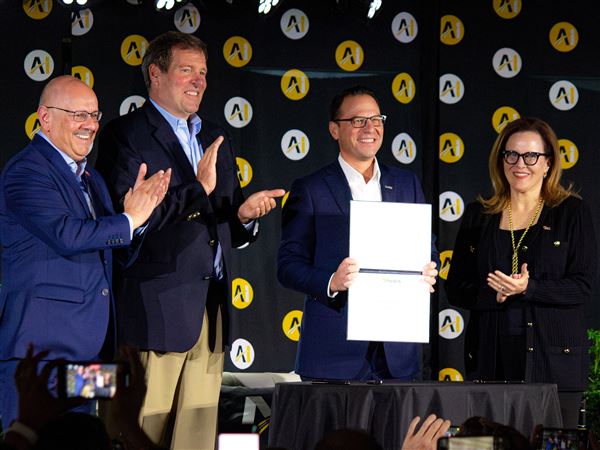WASHINGTON
Transparency" is the most promising buzzword of the 21st century. Politicians promise it whenever they campaign. CEOs promise it whenever they get caught.
President Barack Obama campaigned on a promise of "transparency" in government, and on the first day of his presidency, he summoned his Cabinet, staff and the news media to witness his first act of promissory deliverance -- the signing of an executive order on ethics that set new limits on dealings with lobbyists.
"Transparency and the rule of law will be the touchstones of this presidency," he unabashedly declared.
One year later, here's what we know: Mr. Obama promised us a transparent presidency -- but so far has just given us a translucent presidency.
"Translucent," says the Merriam-Webster online dictionary, is "transmitting and diffusing light so that objects beyond cannot be seen clearly."
That's the Obama presidency so far. We see some light -- but the more we peer behind the scenes to discover what is happening, all we can see is that something is happening -- but we can't see what it is. Especially in the making, unmaking and remaking of health care reform.
The Translucent Presidency's health reform work began with a smart but little-experienced president not being well served by some experienced advisers. Soon the smart president was outsmarting himself by thinking he was in control of the boat because his hand was on the tiller, when in fact his boat was being swept downriver over the rocks. (Insert your own whitewater jokes here.)
Mr. Obama's chief of staff, Rahm Emanuel, witnessed President Clinton's health care debacle as a White House political adviser who saw what happened when First Lady Hillary Clinton tried to ram her own policy through Congress. Mission unaccomplished.
So Mr. Emanuel figured his next health reform president should cut Congress a lot of slack. Mr. Obama gave the House and Senate Democrats a free hand -- and it nearly cost him his head. Mr. Obama also looked silly by initially saying he wanted health reform done by August 2009. No one believed that could happen.
Then House Speaker Nancy Pelosi and Senate Majority Leader Harry Reid made deals with politicians and lobbyists. White House aides were in on the dealings. But the translucence of governance kept us both enlightened yet in the dark.
Until the revelation of the most unprincipled deal of all -- a wink-wink gift that won the pro-reform vote of Sen. Ben Nelson, D-Neb. The deal gave Nebraska citizens something for free that every other state's citizens had to pay for. Mr. Nelson, who had posed as a senator with substantive issue-based concerns, grabbed the freebee and dust-binned those concerns.
Mr. Obama's spokespeople dutifully dished assurances that transparency is alive and operative -- until The Boss unbagged the cat. Sort of. In a recent interview with ABC News' Diane Sawyer, Mr. Obama said: "... Part of what I had campaigned on was changing how Washington works, opening up, transparency. ... The health care debate as it unfolded legitimately raised concerns not just among my opponents, but also amongst supporters that we just don't know what's going on. And it's an ugly process and it looks like there are a bunch of back-room deals."
Translucence keeps the ugly in the shadows. So, when Mr. Obama met with congressional leaders on health reform, perhaps you noticed that we never got to watch and listen on C-Span, as was envisioned way back in the daze of the sugarplum campaign promises. At one point, Mr. Obama assured ABC's Sawyer that the lack of transparency was "my responsibility" -- but then he made it all perfectly unclear.
"Let's just clarify. I didn't make a bunch of deals. ... I am happy to own up to the fact that I have not changed Congress and how it operates the way I would have liked."
The Translucent Presidency. Perhaps it's a good start. Perhaps just a tease. We'll see -- unless we still can't. In which case, we'll at least know why it's always so dark here in the capital of enlightened governance.
First Published: February 19, 2010, 5:00 a.m.














